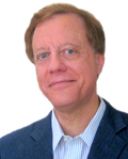
Career
What Does It Mean to Relax? And Should You?
Are you feeling that there is way too much to do? Don't take it easy.
Posted March 9, 2013
There has been a lot of news recently about relaxation and productivity. Are you working more and more but accomplishing less and less? Are you so involved in life’s demands that you are working long hours, taking shorter vacations, and seeing fewer movies? Are you feeling that there is way too much to do? The take-home message from the news seems to be to relax, take it easy, and don’t work hard, but that is the wrong conclusion. It is a misreading of the research findings.
Similar news appears all the time about stress and health. We hear that stress suppresses our immune systems and causes illness. The advice is usually to relax, stay cool, and spend less time working and more time hanging out. But this too is a misreading of the findings.
In the Longevity Project, we have been studying over 1500 bright Americans who were first examined as children in the 1920s. They were followed for their whole lives, and we have evaluated how well they aged and how long they lived. We ask: who lives long, healthy, and thriving lives, and why? We then confirm the results by examining other studies. The amazing findings continually astonish us, and inform our own lives as well.
The Longevity Project reveals that the individuals who stayed busiest stayed healthiest. Often, those who were fully involved in their work (and worked the hardest) lived the longest. It was not those who took a lackadaisical approach to life who thrived. On the contrary, those who persisted in their education, in their careers, and their marriages and community groups were the ones who stayed healthy and lived long. For example, I recently visited one of the participants, who is now 101 and still active in this career. He entered the study over 90 years ago and recently advised his septuagenarian son not to retire! Another example is Norris Bradbury. Decades after entering the study as a child, Bradbury became an atomic physicist, playing a key role on the Manhattan Project, the all-out effort to build the first atom bomb. He followed J. Robert Oppenheimer into the highly demanding job of director of Los Alamos National Laboratory. He was tremendously successful in this highly “stressful” career and stayed active for years and years. He was successful, healthy, and long-lived.
The truth is that the problems with a heavy work load arise from how you deal with it. Sure, you will be less productive if you are always sleepy, have poor nutrition, sit in a chair 80 hours a week, and have no family or friends. But unless you work in a sweatshop, there are ways to build more physical activity into your daily routine; and it doesn’t take longer to eat a healthy meal or snack than an unhealthy one; and there is no law against engaging with and helping your co-workers, fellow students, or family members even while you are accomplishing things. (Of course, if you do work in an over-regulated, endlessly hostile and unchangeable work environment, then it is time to do what the thrivers in The Longevity Project did: persist in changing their careers and life paths.)
Further, the truth is that challenging work is not unhealthy unless you do not have the personal and social resources to deal with it. When you are feeling very anxious and stressed, you are already ill. The “stress” is not causing the illness, it is part of the illness. The secret is to do those things that provide a balance in life and keep us involved in meaningful ways. Prioritize. The details vary for each individual but for some it might be increased walking or jogging, for others it might be politics or community volunteer work, and for still others it might be cooking with friends. It may mean trying to make tough situations better for everyone—yourself and your associates. It may mean building variety into your work by changing tasks when one gets boring. It may mean working or studying with a “buddy” to keep each other on track. It does not mean running away from challenges or passing one’s work on to others.
Here’s the irony. Take a look at some of the people who are giving you the advice to relax and slow down. They are highly accomplished journalists, successful scientists, and gurus running highly thriving and lucrative meditation centers. You’d better believe they work really hard and are very dedicated to their work. A lesson of The Longevity Project boils down to working in a smart and balanced way, not constantly seeking ways to relax, retire, and retreat.
If you are interested, The Longevity Project was recently published in paperback edition by Plume (see http://www.howardsfriedman.com/longevityproject/ ) and is available on Kindle and Nook. The book also contains self-assessment quizzes to help you figure your current trajectory. Copyright © 2013 Howard S. Friedman, all rights reserved.
Photograph of Gerald R. Ford Napping while Deep-Sea Fishing. Gerald R. Ford Presidential Library and Museum, Via WikiMedia Commons

